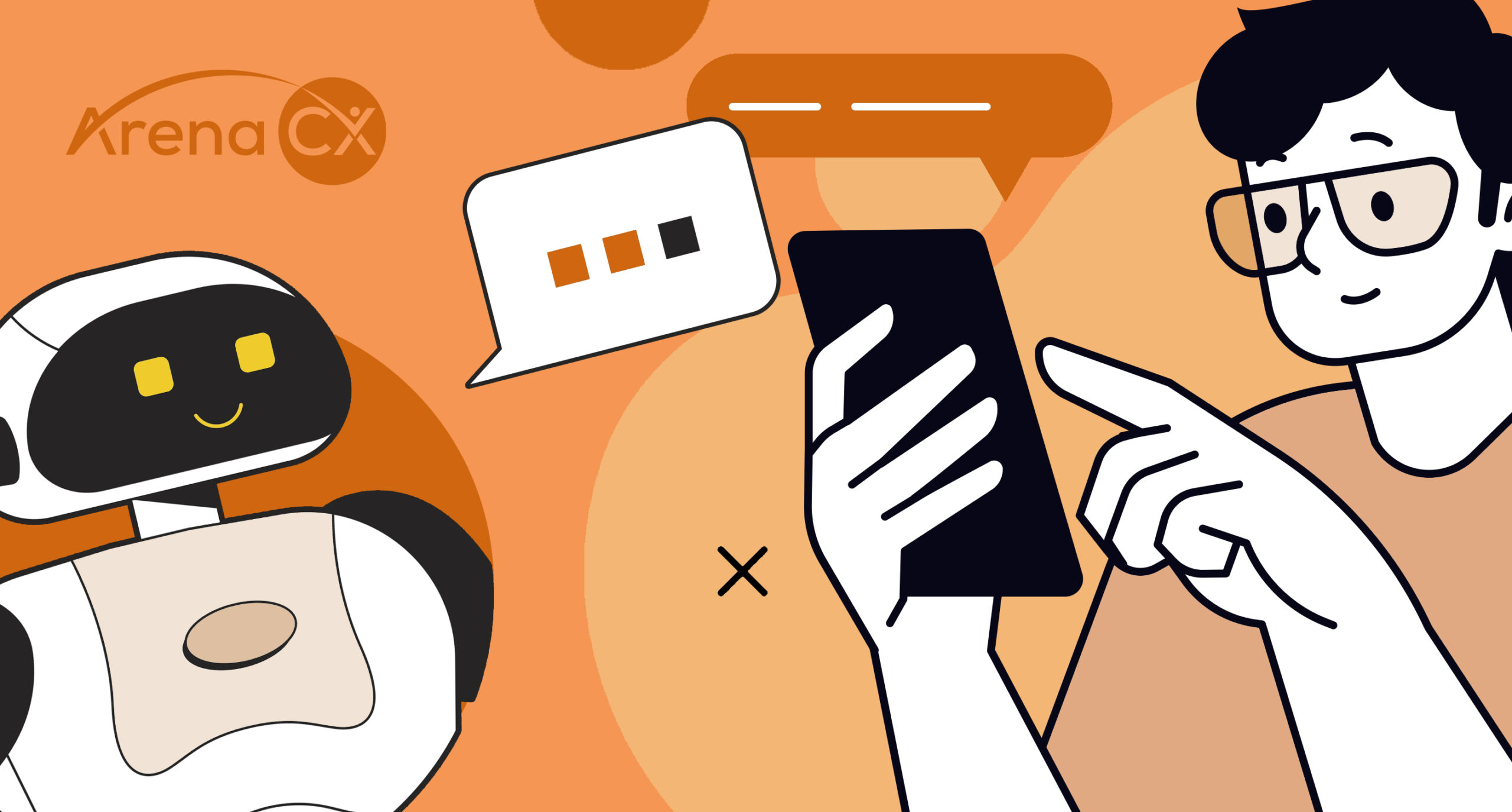Technology is advancing in the fast-changing world of customer service, and Artificial Intelligence (AI) is more than just a trend—it’s a must-have. It’s now a game-changer that businesses can’t afford to ignore. In this article, we will look at how innovative software solutions transform the future of agent training and how organizations can thrive in this age of AI.
The Rise of AI in Customer Service
In this ever-changing world of customer service, it has become increasingly challenging to meet the needs of tech-savvy customers while also keeping customer service agents satisfied. It is estimated that companies globally will lose up to $4.7 trillion worth of business annually due to the poor customer service experiences they offer.
So what’s the solution?
Seamless integration of artificial intelligence (AI) in customer support processes while keeping the empathy of human interactions intact.
McKinsey believes that AI technology might bring up to $1 trillion in value to the financial sector alone, with a significant share due to improved customer experience.
How To Train Customer Service Agents To Navigate The Era of AI
Training customer service agents to navigate the era of AI requires clear communication from company leaders regarding the impact of AI on the workforce.
It’s essential to convey to customer service agents that AI is not a threat but a tool to be embraced, empowering agents in their roles, improving performance, adding value to the business, and proving the overall customer experience.
Advanced AI Training For Customer Service Agents
Training Them to Understand How AI Works
Agents need to have a basic understanding of AI principles. Training programs can cover the basics of machine learning, chatbot functionality, and interactive voice response systems. This knowledge will empower agents to collaborate well with AI tools without seeing them as a threat.
Data Literacy Training
Training of customer service agents should also include data literacy skills. By acquiring these skills, agents will be able to understand the value of high-quality data, how it affects AI models, and how data insights can help make better customer service decisions.
Customized AI Solutions Training
AI solutions do not come in one size fits all. Agents should be trained on the AI tools that their organization uses. By doing so, agents can appreciate their AI tools’ different features and constraints and how machine learning algorithms and interactive voice response systems work.
Involving Agents in Decision-Making
Agent Feedback Sessions
Regular feedback sessions with agents provide essential insights into customer service gaps, pain points, and areas where AI can be most effective. Frontline agents often have unique perspectives on customer demands and difficulties.
Workshops on Collaborative AI Strategy
Involve agents in workshops focusing on developing strategies for a more seamless AI adoption across the department. This collaborative approach guarantees that AI adoption aligns with customer service agents’ typical workflows and challenges.
Hands-on Training for Customer Service Agents
Conduct Simulation Exercises
Conduct simulated scenarios in which agents engage with AI technologies in an appropriate setting. This hands-on experience allows them to become acquainted with AI interfaces, understand query-handling processes, and gain confidence in using AI.
Gradually Integrate AI Into Customer Service Offices
Begin by implementing AI for specific tasks, then gradually adapt agents. This stepwise approach does not overwhelm agents and provides a smooth transition by allowing agents to focus on mastering one component before progressing to more advanced AI functionalities.
Staying Ahead of Customer Expectations
Continuous Learning Programs
As AI technologies advance, so do customer expectations. Implement continuous learning programs to update agents on AI developments, customer trends, and AI-driven customer care methods.
Presence of Feedback Loops
Create feedback loops for agents to offer insights on AI performance. This continuous feedback loop guarantees that any flaws or improvements are fixed immediately, preserving the symbiotic relationship between agents and AI.
Cross-Functional Collaboration
Encourage collaboration between the firm’s customer service teams and AI experts. It guarantees that agents have access to professional expertise when needed and encourages a culture of shared accountability for the success of AI-driven customer service.
Artificial Intelligence as Support, Not Replacement
No organization can deny that AI has become increasingly commonplace in the CCaaS sector, as generative AI tools such as ChatGPT and Bard have become household names. These tools are beneficial for automating redundant tasks and can empower customer support representatives.
To fully reap the rewards of artificial intelligence, company executives must have honest and open lines of communication with their employees. Agents should see AI as a tool to improve their jobs, increase productivity, and provide a better customer experience rather than as a threat.
According to Forbes, AI will only replace human customer service jobs in the short term, which means that the long-term solution is finding a way for AI and human beings to work together in harmony.
Conclusion
In conclusion, preparing customer service agents for the era of AI requires a holistic approach that combines advanced training, active involvement in decision-making processes, hands-on implementation, and a commitment to staying ahead of evolving customer expectations. By empowering agents with the proper knowledge and tools, businesses can unlock the full potential of AI to enhance customer experiences and drive long-term success.
Related Articles
Want more? Here are some other blog posts, topics and articles you might be interested in.













